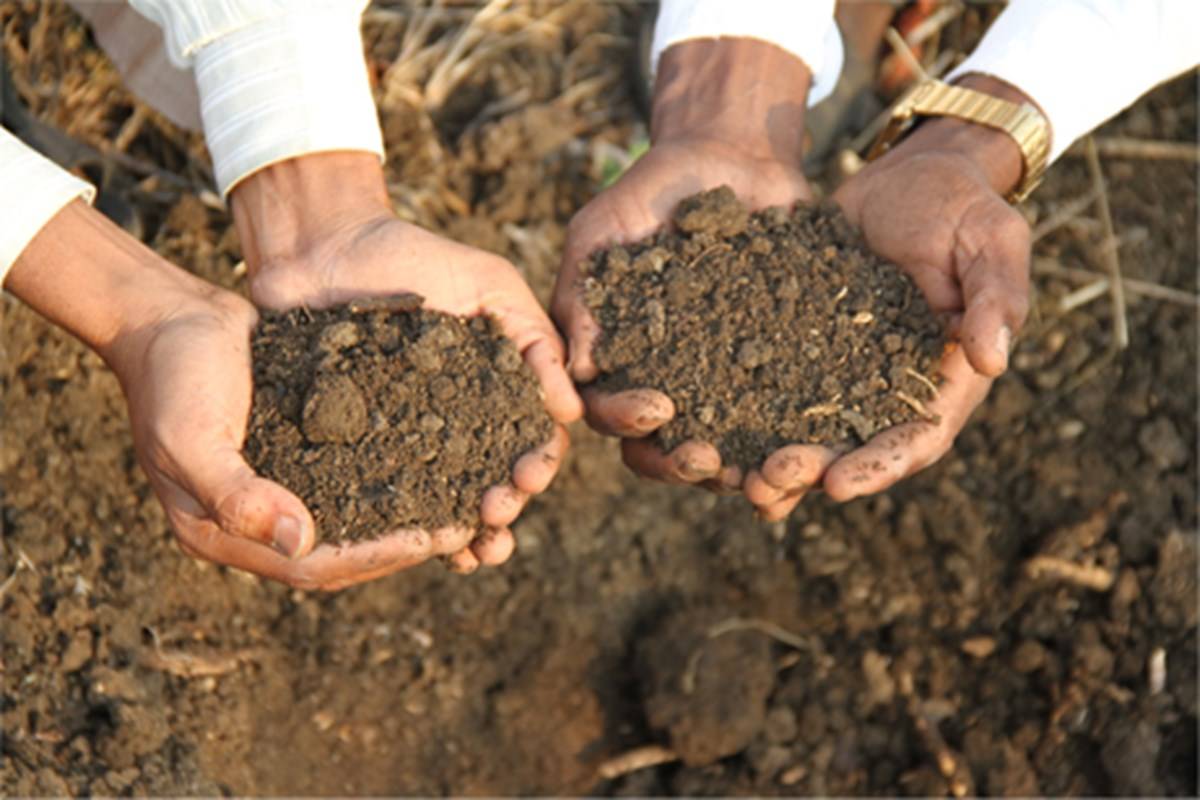
Soil fertility is the inherent capacity of soil to supply plant nutrients in sufficient amount and appropriate proportion & free from toxic substances. Soil productivity is the ability of the soil to produce crop / unit area. Therefore a fertile soil could or could not be productive depending upon crops, marketing condition & many other factors (excessive acidity / alkalinity, presence of toxic substances, poor physical properties or deficiency of water). However every productive soil has to be fertile. Soil productivity generally depends on soil fertility to a great extent.
Types of Soil Fertility:
1. Inherent / Natural Fertility:
Nature's soil includes nutrients known as "inherent fertility." Nitrogen, phosphorus, and potassium are plant nutrients that are required for normal crop growth and productivity. In India, soil includes 0.3 to 0.2 percent nitrogen, 0.03 to 0.3 percent phosphorus, and 0.4 to 0.5 percent potassium. Natural fertility has a limiting element that prevents fertility from decreasing.
2. Acquired Fertility:
The fertility created through the application of manures and fertilizers, tillage, irrigation, and so on is referred to as ‘acquired fertility'. A limiting element in acquired fertility is also present. Experiment results show that increasing the amount of fertilizer used has no discernible effect on production. Thus, it is critical to apply fertilizer based on the nutritional content of the soil, which is evaluated by soil testing.
Ways to improve soil fertility
Here are few ways in which you can improve soil fertility and enhance production:
Organic matter
The most effective technique to improve soil fertility is to incorporate a variety of organic matter. To begin with, manure must be added to give nitrogen, which is a necessary component of productive soil. In this case, manure from farm animals (cows and pigs) is an excellent choice. Dung from healthy, free-range animals is preferable to manure from factory-farmed animals.
Manure from sick or restricted animals contains more pathogens that can contaminate your crops. Even if the animal excrement is in good condition, you must wait at least three months before spreading it on the garden bed or harvesting your vegetables. This will protect against contamination.
Biochar
Biochar promotes soil fertility by acting as a direct nutrient source or by altering the soil's physicochemical qualities. The nutritional content of biochar is determined by the type of feedstock utilized.
To ensure low volatilization of essential nutrients, optimal pyrolysis conditions must be used. A large percentage of the nutrients in biochar should be in bio-available forms. When added to the soil, biochar becomes an effective slow-release nitrogen source. It is not, however, a long-term contributor to soil fertility.
The application of biochar in acidic soils leads to an increase in soil pH, which leads to an increase in agricultural productivity. Biochar can act as a stable carbon source in the soil and boost soil CEC, hence preserving several micro-and macronutrients.
The WHC of soil, water infiltration, and soil aeration are all regulated by biochar particle macropores. Biochar treatment improves the overall soil enzyme, which comes from MO, plants, and animals.
Green Manuring
The main function of a green manure crop is to prepare the soil for succeeding crops. Green manures work by drawing the nutrients from soil & storing them in their bodies. These crops are not harvested & taken away from the land as this will take away the nutrients, but are tilled into the soil while they are still green. When turn back into the soil, plants gradually decompose and slowly release all these nutrients to the next crop.
Simultaneously green manure serves as a source of food for several soil microbes and organisms. The abundance of soil fauna is very important for soil health. Their movement & activity helps build a good soil structure & by feeding on the organic matter, they allow for its distribution in soils.
Green manuring is a practice that can be easily applied to large farming plots and small vegetable gardens.
Mulching
Mulch is a layer of material that is applied to the surface of the soil. Reasons for applying mulch are conservation of soil moisture, improving fertility & health of the soil, decreasing weed growth, and enhancing the visual appeal of the area.
Mulch is generally, but not exclusively, organic in nature. It can be permanent as well as temporary. It may be applied to bare soil or around existing plants. Mulches of manure or compost will be incorporated naturally into the soil by the activity of worms & other organisms. The procedure is used both in commercial crop production as well as in gardening and if applied correctly, can radically improve soil productivity.
Mixed cropping
A lesser-known method to improve soil fertility is to sow different crops in the same field in order to avert soil erosion and control the spread of soil-borne plant diseases. And doing this with the legumes will have the benefit of putting nitrate into the soil. Always try to use deep-rooted vegetables that will enhance soil fertility naturally.
Hope the article was useful to you !!!!
(Also read: Natural Ways To Make Your Soil More Fertile)









